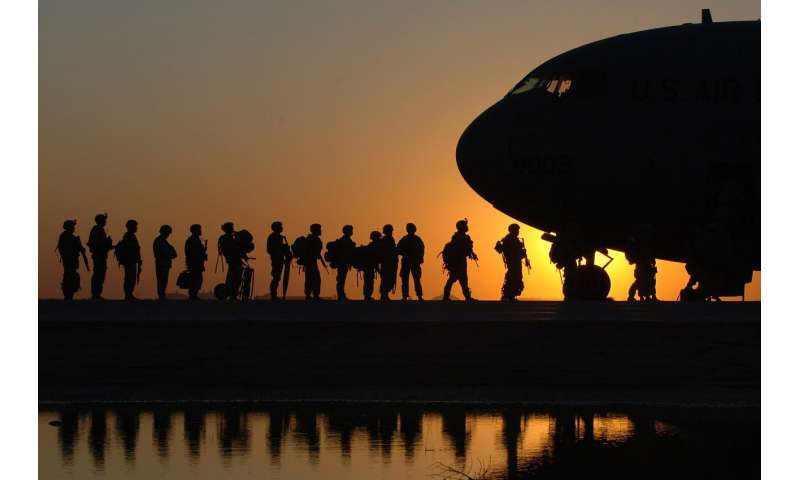
Officials at the Shaw Air Force Base in South Carolina are giving service members a day off following the suicides of several airmen. They will also get another day off in September, and gather for small-group training to address suicide prevention. Could the down days bolster the mental health of airmen?
Kenneth Marfilius is a visiting teacher professor at Syracuse University’s Falk College and a veteran. Professor Marfilius has a specialization in military mental health, veteran social work, suicide prevention, substance use prevention and treatment and military culture and social work practice. He says the decision to provide airmen with time off is a step in the right direction and pushes for more integrated networks of support for service members and veterans.
Marfilius says: “Suicide prevention is very complex, and there’s no one thing that we can do that will solve this; however, there are certainly steps we can take as a society to help prevent suicide.
“There are risk and protective factors for suicide. Suicide prevention aims to reduce the risk factors while increasing the protective factors. Protective factors are environmental and personal characteristics; such as, one’s ability to adapt to change (coping skills), having a social support network, stable housing, sense of purpose or meaning in life, and access to quality mental health care. On the contrary, risk factors can include but not limited to access to lethal means, social isolation, history of mental health disorders, and lack of access to quality mental health care.
“There has been a considerable increase in suicide prevention efforts, particularly from the Department of Defense and Department of Veterans Affairs administration; however, this continues to be a difficult topic to study. The decision to provide airmen with time off is certainly a step in the right direction.
“Air Force leaders are prioritizing the mental health of their airmen, demonstrating the need to understand certain situations and risk factors leading to suicide in the Air Force. Chief Master Sergeant of the Air Force Kaleth Wright stated, “We lose more Airmen to suicide than any other single enemy, even more than combat.” This comment demonstrates the magnitude of suicide as a leading public health crisis, demanding further discussion and action from military and civilian leaders.
Source: Read Full Article



